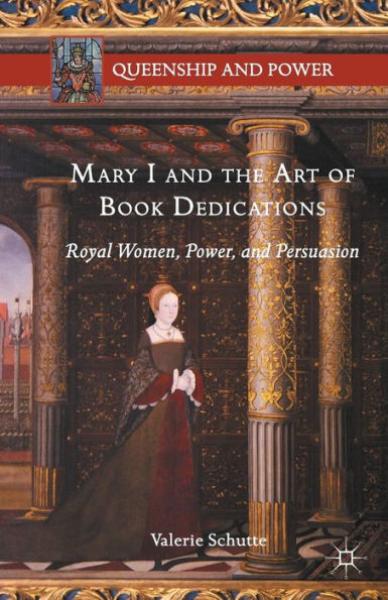Description
In this revisionist approach to book history and Marian studies Valerie Schutte argues that manuscript and printed book dedications reveal contemporary perceptions of statecraft, religion, and gender. She offers the first comprehensive catalogue of all book and manuscript dedications to Mary and all books known to have been in Mary's possession.
"Printed book and manuscript dedications were at the juncture between the actual interests and reading abilities of Tudor royal ladies and the beliefs and hopes of those who wrote and printed them on what was suitable for royalty and how royal ladies might be persuaded in certain directions. Queen Mary I received eighteen manuscript dedications and thirty-three printed book dedications, the majority of them were religious in nature, specifically addressing a return to Catholicism. In this revisionist approach to book history and Marian studies Valerie Schutte argues that dedications, and the negotiations that accompanied them, reveal both contemporary perceptions of how statecraft, religion, and gender were and the political maneuvering attempting to influence how they ought to be. Schutte offers the first comprehensive catalogue of all book and manuscript dedications to Mary and all books that were known to have been in Mary's possession"--
"Its current printed format is attractive and bright, and it covers an impressively wide range of materials in seven different bibliographic systems. ... There is a glossary and short bibliography which includes guides on how to avoid plagiarism. The index is extensive ... . this is a useful, accessible book in an increasingly complex area, justifying its subtitle, the essential referencing guide." (Val Hamilton, Reference Reviews, Vol. 31 (1), 2017)
"Printed book and manuscript dedications were at the juncture between the actual interests and reading abilities of Tudor royal ladies and the beliefs and hopes of those who wrote and printed them on what was suitable for royalty and how royal ladies might be persuaded in certain directions. Queen Mary I received eighteen manuscript dedications and thirty-three printed book dedications, the majority of them were religious in nature, specifically addressing a return to Catholicism. In this revisionist approach to book history and Marian studies Valerie Schutte argues that dedications, and the negotiations that accompanied them, reveal both contemporary perceptions of how statecraft, religion, and gender were and the political maneuvering attempting to influence how they ought to be. Schutte offers the first comprehensive catalogue of all book and manuscript dedications to Mary and all books that were known to have been in Mary's possession"--
"Its current printed format is attractive and bright, and it covers an impressively wide range of materials in seven different bibliographic systems. ... There is a glossary and short bibliography which includes guides on how to avoid plagiarism. The index is extensive ... . this is a useful, accessible book in an increasingly complex area, justifying its subtitle, the essential referencing guide." (Val Hamilton, Reference Reviews, Vol. 31 (1), 2017)
"It provides a thorough catalogue of the book and manuscript dedications to Mary, as well as the books in the queen's personal library. ... An eminently readable and accessible volume, this book is a valuable addition to the existing scholarship on Mary I. ... The book also reveals a significant forum by which Mary was both offered instruction, and, in varying degrees, was able to negotiate patronage, politics, and religion." (Anne Mearns, Royal Studies Journal, Vol. 4 (1), 2017)
Last updated on
Product Details
- Palgrave MacMillan Us Brand
- Aug 3, 2018 Pub Date:
- 1349565946 ISBN-10:
- 9781349565948 ISBN-13:
- 208 Pages
- 8.5 in * 5.5 in * 0.47 in Dimensions:
- 1 lb Weight:




